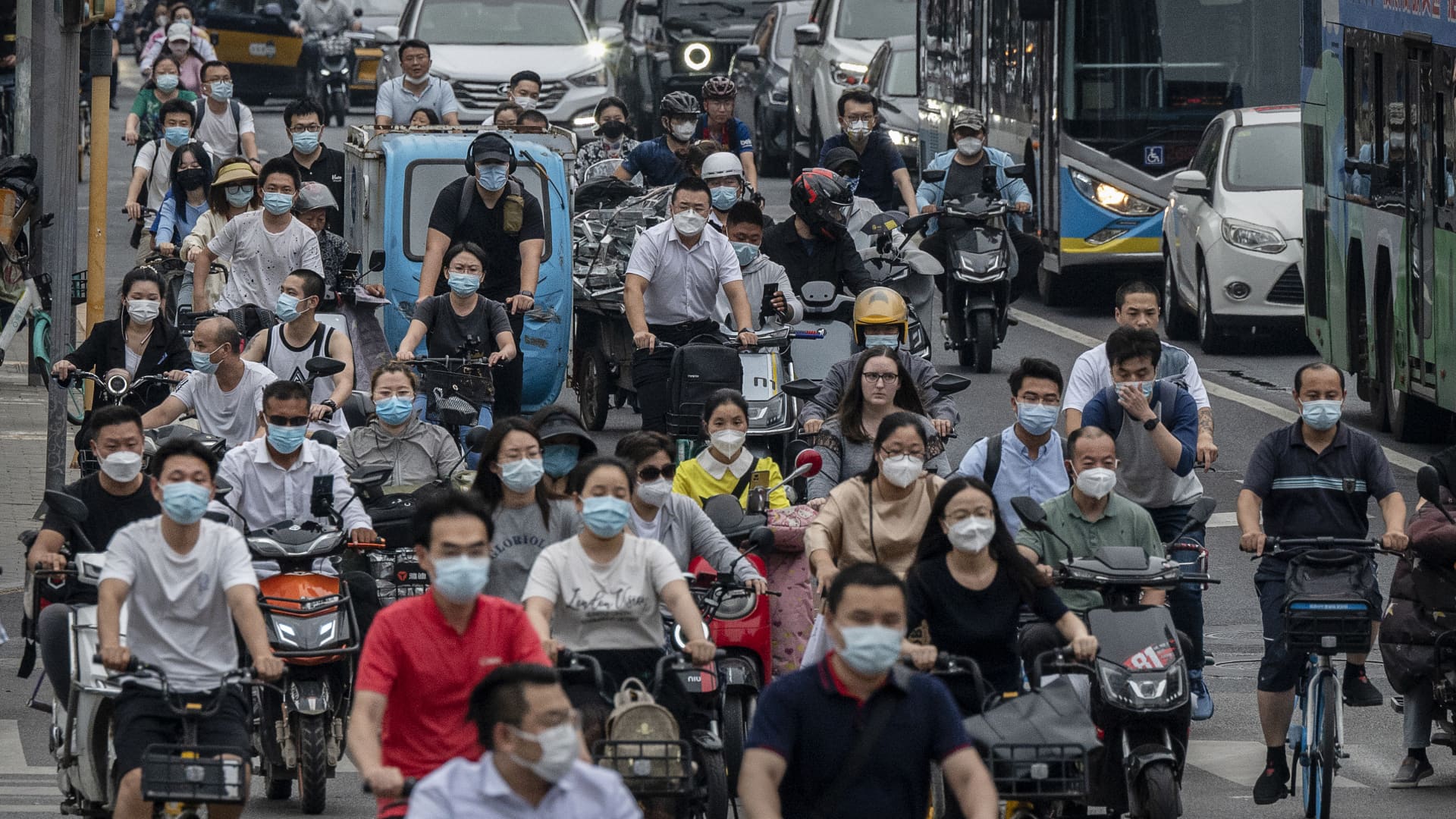
China will fare the worst if spiking inflation, slowing growth and rising interest rates lead to stagflation, according to the results of a stress test of 20,000 companies conducted by credit rating agency, S&P Global Ratings.
Stagflation is characterized by rising prices and slowing economic growth or high unemployment.
The company said over 90% of its sample was made up of unrated companies with debt totaling $37 trillion, representing 41% of total global corporate debt. The companies were categorized into four risk tiers: low, moderately low, moderately high, and high.
Speaking to CNBC’s “Squawk Box Asia,” S&P Global Ratings senior research fellow Terry Chan said the reasons for China’s vulnerability are historical, a legacy from the years of high growth which led to Chinese companies becoming highly leveraged, or high in debt.
“Now that China’s growth is slowing down, they’re taking a double hit, both from slowdown in growth and price pressures coming up from overseas because some of the components are being imported … And that’s why under the stress test, they seem to perform the worst,” Chan said.
He added that the government has been trying to strike a “balancing act.”
“They’re trying to rebalance the economy [so they can] strengthen some of the state-owned corporations and maybe reduce the size of the private sector,” he said.
Zero-Covid policy
Chan also said both business and consumer sentiment are being affected by Covid lockdowns in China. The country, unlike the rest of the world, has pursued a strict zero-Covid policy to contain outbreaks. Though it showed signs of easing such measures in May, regions with new spikes in cases earlier this month were placed on alert, facing the prospect of more lockdowns.
There are other factors at play, such as China’s crackdown on the real estate market in 2021 in an attempt to curb speculation in the sector, Chan said. Xi also launched a crackdown on technology companies, he added.
Speaking more broadly, Chan drew a parallel between current economic challenges and the inflation problem the U.S. faced in the 1970s. He added that a recession could become inevitable, and may be a way to “break the back” of persistent inflation.




